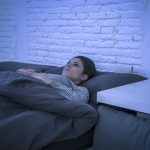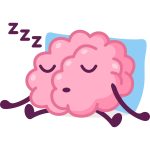Summary: The 2024 Presidential Election Sleep Report from Sleep Cycle revealed that, despite the high-stakes election, Americans experienced less stress and slept better on election night compared to 2020. Analyzing data from over 593,000 sleep sessions, the report found that 34.2% of users reported sleep disruptions this year, down from 44.2% in 2020. Additionally, fewer users logged a “stressful day” on election night, and younger adults (ages 18-24) even went to bed earlier than in the previous election. Researchers suggest quicker election results may have eased stress levels.
Key Takeaways:
- Stress Levels Dropped Compared to 2020: The number of users marking “stressful day” in their sleep notes fell by over half in 2024 compared to the previous election cycle.
- Older Adults Stayed Up the Longest: The age group of 55-64 years old saw the most significant increase in bedtime, staying up 11 minutes later than they did during the 2020 election night.
- Slight Decline in Negative Sleep Impacts: While 92.7% of those affected by the election reported negative impacts on sleep in 2024, this was a slight improvement from 96.5% in 2020.
Sleep technology company Sleep Cycle released its 2024 Presidential Election Sleep Report, revealing surprising metrics on how the US election affected—or seemingly did not affect—America’s night of rest.
Users adding “stressful day” in their sleep notes increased by 18% compared to a regular Tuesday in October 2024, but this is a sharp decline from 54% of users reporting “stressful day” on the 2020 election, compared to a regular Tuesday in October 2020.
The report is based on anonymized data from over 593,000 sleep sessions in the US, where users have voluntarily shared their sleep data, as well as data from the four Tuesdays prior to election night and results from a survey in the Sleep Cycle app. The full report presents data broken down by state and age group compared to election night in 2020.
Additional election night sleep data highlights:
- 34.2% of users said the 2024 election impacted their sleep, a decrease compared to 2020, when 44.2% respondents reported sleep impacts.
- Of the 34.2% who reported sleep impacts, 92.7% reported it negatively impacted their sleep in 2024; this is a 4% decrease in negative impacts compared to 2020 when 96.5% users noted it negatively impacted sleep.
- In 2024 most age groups stayed up later than on the 2020 election night—but there is one age group that didn’t. Individuals aged 18-24 went to bed slightly earlier (two minutes sooner) than the previous election.
- The age group that stayed up the longest compared to the previous election ranged from ages 55-64, going to sleep 11 minutes later than the last election.
Erik Jivmark, CEO of Sleep Cycle, comments on the findings, adding that the quick election results may have contributed to better sleep for many users. “Our data from the 2024 election night reveals an interesting shift, with a markedly lower impact on sleep and stress compared to 2020,” he says in a release. “While election nights often bring increased stress and excitement, this year’s data shows a calmer response, which contributes to improved sleep—a surprising outcome considering the tension surrounding this election.”
ID 94898113 © Fizkes | Dreamstime.com




Leave a Reply